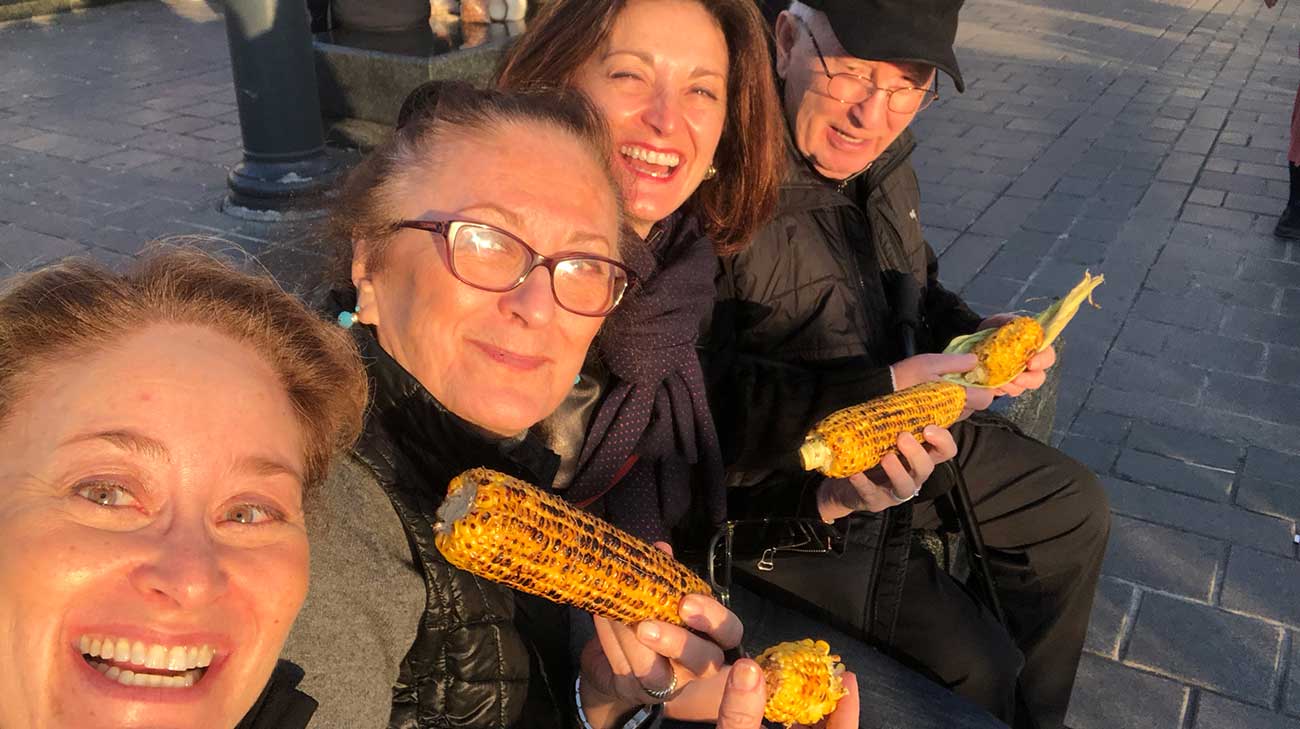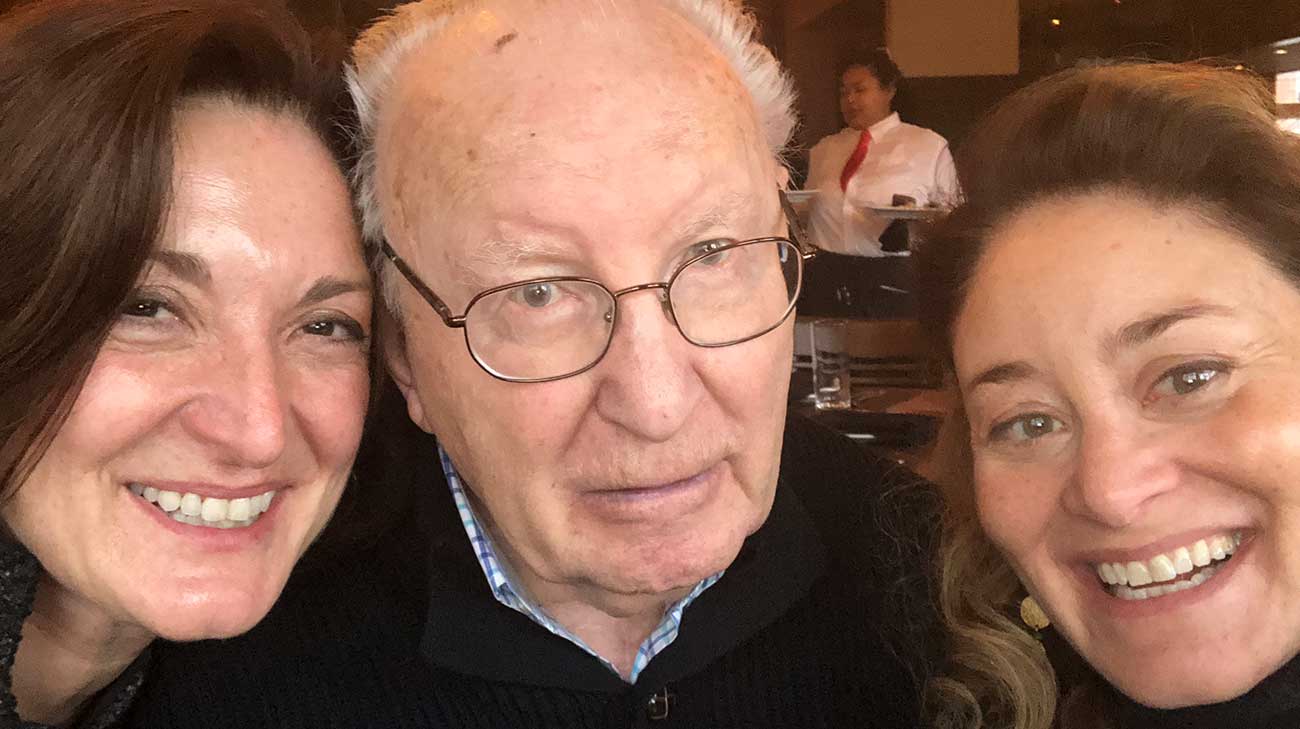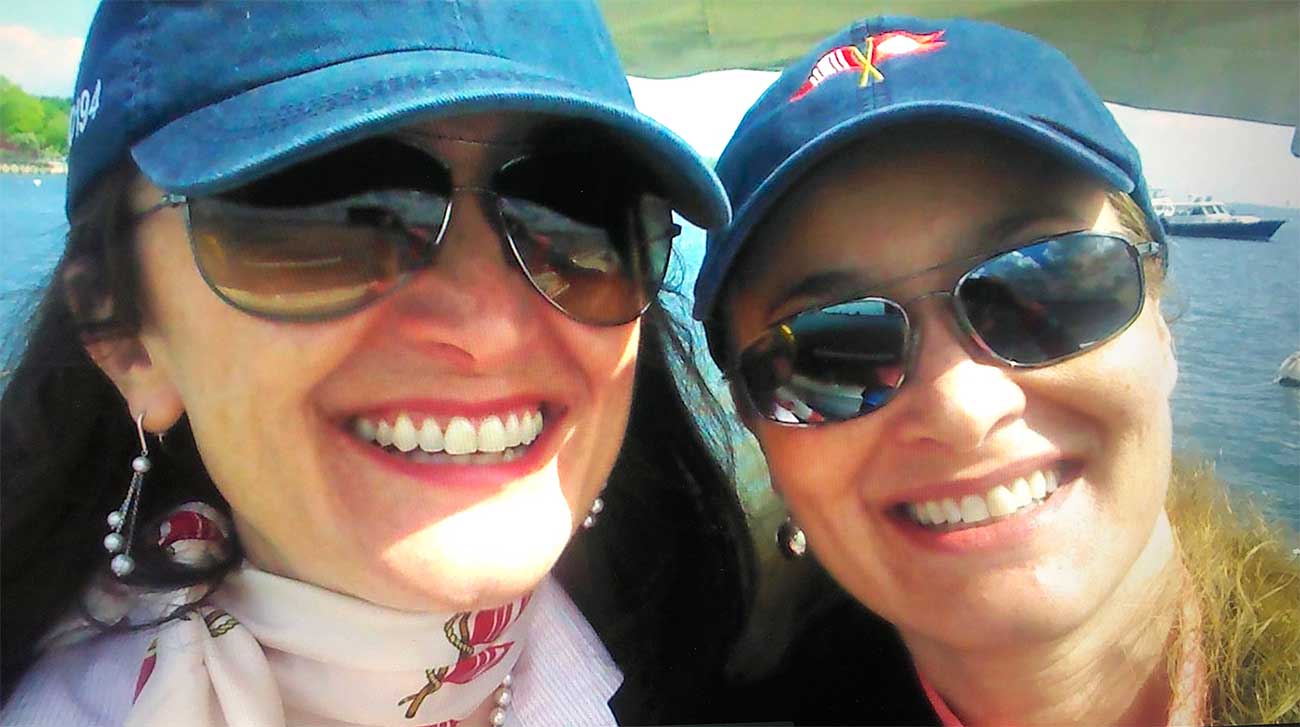
In 2021, like everyone else, Esra Yagan was navigating the effects of the COVID-19 pandemic. Though demanding, her work in cybersecurity was fulfilling, and she was focused on her family. Ensuring her parents’ wellbeing was a priority, especially after her 91-year-old father with Parkinson’s Disease had a heart attack that June.
She wasn’t eating or sleeping well, and, like many other women she knew, she was developing a stomach bulge. She also had low iron. It didn’t surprise her that she felt fatigued all the time because she attributed it to the demands of her daily life and being in her 50s. Noting that friends of a similar age took supplements, “I thought that if I took my iron pills regularly and ate steak once a week, like them, I would get better too,” she says. Around that time, she also noticed some changes in her bowel movements, which she dismissed, as well, thinking it was her steady diet of comfort food.
“I had all of these things, but I rationalized them,” Esra says. “I knew I wasn’t eating well, and I thought the stomach protrusion was because I was gaining muscle from some ab workouts. But I rarely exercised. I tried to, but I didn’t have the energy or stamina. I tried to take walks, and I also tried a one-hour tennis lesson, but I couldn’t finish. I thought I was just out of shape. I was eating a lot of cheese and chocolate, and I literally didn’t feel like doing much of anything active.”
One occasion, in particular, alarmed her – but only for her being out of shape. “On the 4th of July, I always make my balcony look like a terrace in Topkapi Palace, but I couldn’t do it,” she says. “I couldn’t move furniture or do anything to set it up.”

Dr. Neda Yagan, Dr. Rauf Yagan, and Esra Yagan
She downplayed her symptoms until one morning in February 2022, when chest constriction and shortness of breath led her to a hospital emergency department near her Lakewood, Ohio, home. She was diagnosed with a collapsed lung, which was the reason for her distressed breathing. Though she fully recovered, she confided in her sister, a radiologist, that she still felt constriction and discomfort. Her sister then pressed her to pursue additional imaging, which revealed the presence of a large mass attached to her stomach. Although the mass was deemed unrelated to her collapsed lung, the cause of which remains undetermined, it was found to be malignant and the source of her earlier symptoms.
Within 10 days, Esra met with Cleveland Clinic oncologist Dale Shepard, MD, PhD, and Chair of General Surgery R. Matthew Walsh, MD, who started her treatment with a chemotherapy drug to shrink the tumor. When Dr. Walsh performed surgery in November 2022, he found that the drug had reduced the softball-sized tumor by 25 percent, and killed 70 percent of the cancer cells.
“In some ways, Esra is not typical because patients often don’t have symptoms,” Dr. Walsh says. “The most common one is bleeding, and she probably had slow bleeding that was making her anemic. A lot of these masses are found on CT scans when patients come in for other reasons, or during an endoscopy.”
When symptoms are present, they typically include black stools and light-headedness, stomach pain or bleeding during bowel movements, feeling full too quickly when eating, or nausea and vomiting.
“These tumors develop from the muscle layer of the stomach, beneath the stomach surface lining,” Dr. Walsh says. They can grow in any part of the stomach, he says, and in Esra’s case, it was at the back. She may have had cancer for a few years before noticing any symptoms. “They can be slow-growing,” he says.
Dr. Walsh performed surgery to remove the tumor (involving half her stomach) and rerouted her small intestine to what remained of the stomach. Afterward, she was able to eat normally. In addition, her lymph nodes were unaffected.
“Some tumors spread through lymph nodes, but these don’t,” Dr. Walsh says. “We only had to remove the mass completely. She had a good pathology report, and chemotherapy will help keep the cancer from returning.” Her prognosis is very good, he says.
Cleveland Clinic’s multidisciplinary Gastrointestinal Stromal Tumor (GIST) team sees patients like Esra often, Dr. Shepard says. “It is my top, or one of my top two, tumor consults every year. We specialize in rare tumors, and I focus on sarcomas. We do a lot of imaging and surgeries, and that leads to the diagnosis of a lot of GIST here at Cleveland Clinic.”
He notes that Dr. Walsh “could have just taken out Esra’s tumor from the start, but this is the multidisciplinary nature of what we do in the GIST clinic. In order to get a better outcome, she saw both of us, and we treated her before surgery to shrink the tumor so that she would lose as little of her stomach as possible.”
Dr. Walsh says patients benefit from the expertise of a Tumor Board, which focuses on sarcoma and other kinds of tumors and involves “input from a lot of experts.” Cleveland Clinic performs a high volume of surgery on stomach tumors using a variety of techniques and types of technology, including robotics. “We tailor surgery to each patient’s exact tumor.”
A wide range of available options is tremendously important, Dr. Shepard says. “We don’t only talk about chemotherapy or cutting the tumor out. We work together as a team to come up with the best plan for each patient. It’s something we do really well, and it’s not only our doctors. We also have great nursing care and psychosocial support, and we consider the best locations for patients to get their treatments, such as our regional sites.”
In most cases, there is no identifiable cause of the kind of tumor Esra had, Dr. Shepard says. Nor is it hereditary. “We don’t have any sort of screening mechanism.”
That is one reason to pay attention to any symptoms and see a physician, Dr. Shepard says. “If something doesn’t seem right, talk to your doctor and have it looked at, starting with your primary care doctor, who will work on getting the right tests scheduled. Don’t try to explain away your symptoms. It’s better to be reassured there’s not a problem than ignore it and have it get worse.”

Sisters Dr. Neda Yagan and Esra Yagan
Esra agrees, adding that this is her most important piece of advice to others and her reason for sharing her story publicly.
“First and foremost, my care by Dr. Shepard and Dr. Walsh has been excellent,” she says. “Since the day we met, they always made me feel very confident, comfortable and secure. I can’t thank them enough, or their nurses and everybody in the hospital. I am so grateful that I was in their hands. Second, my advice to others would be not to ignore changes in your body. Don’t rationalize, like I did. Pay attention and ask your doctor to help you check them out. I was lucky to have an unrelated medical crisis and such a persistent sister. Hopefully, my story will help others who have noticed changes to reach out to their doctor.”
Related Institutes: Cleveland Clinic Cancer Center, Digestive Disease & Surgery Institute

